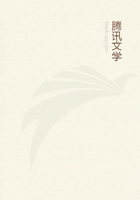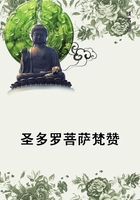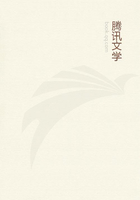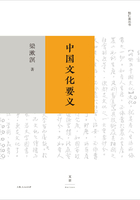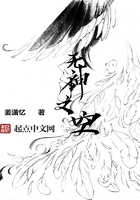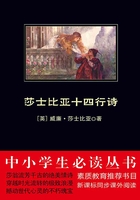One day we marched over a country of thorn-scrub desert. Since two days we had been cut loose from water, and had been depending on a small amount carried in zinc drums. Now our only reasons for faring were a conical hill, over the horizon, and the knowledge of a river somewhere beyond. How far beyond, or in what direction, we did not know. We had thirty men with us, a more or less ragtag lot, picked up anyhow in the bazaars. They were soft, ill-disciplined and uncertain. For five or six hours they marched well enough. Then the sun began to get very hot, and some of them began to straggle. They had, of course, no intention of deserting, for their only hope of surviving lay in staying with us; but their loads had become heavy, and they took too many rests. We put a good man behind, but without much avail. In open country a safari can be permitted to straggle over miles, for always it can keep in touch by sight; but in this thorn-scrub desert, that looks all alike, a man fifty yards out of sight is fifty yards lost. We would march fifteen or twenty minutes, then sit down to wait until the rearmost men had straggled in, perhaps a half hour later. And we did not dare move on until the tale of our thirty was complete. At this rate progress was very slow, and as the fierce equatorial sun increased in strength, became always slower still. The situation became alarming. We were quite out of water, and we had no idea where water was to be found. To complicate matters, the thornbrush thickened to a jungle.
My single companion and I consulted. It was agreed that I was to push on as rapidly as possible to locate the water, while he was to try to hold the caravan together. Accordingly, Memba Sasa and I marched ahead. We tried to leave a trail to follow; and we hoped fervently that our guess as to the stream's course would prove to be a good one. At the end of two hours and a half we found the water-a beautiful jungle-shaded stream-and filled ourselves up therewith. Our duty was accomplished, for we had left a trail to be followed. Nevertheless, I felt I should like to take back our full canteens to relieve the worst cases. Memba Sasa would not hear of it, and even while I was talking to him seized the canteens and disappeared.
At the end of two hours more camp was made, after a fashion; but still four men had failed to come in. We built a smudge in the hope of guiding them; and gave them up. If they had followed our trail, they should have been in long ago; if they had missed that trail, heaven knows where they were, or where we should go to find them. Dusk was falling, and, to tell the truth, we were both very much done up by a long day at 115 degrees in the shade under an equatorial sun. The missing men would climb trees away from the beasts, and we would organize a search next day. As we debated these things, to us came Memba Sasa.
"I want to take 'Winchi,'" said he. "Winchi" is his name for my Winchester 405.
"Why?" we asked.
"If I can take Winchi, I will find the men," said he.
This was entirely voluntary on his part. He, as well as we, had had a hard day, and he had made a double journey for part of it.
We gave him Winchi and he departed. Sometime after midnight he returned with the missing men.
Perhaps a dozen times all told he volunteered for these special services; once in particular, after a fourteen-hour day, he set off at nine o'clock at night in a soaking rainstorm, wandered until two o'clock, and returned unsuccessful, to rouse me and report gravely that he could not find them. For these services he neither received nor expected special reward. And catch him doing anything outside his strict "cazi" except for US.
We were always very ceremonious and dignified in our relations on such occasions. Memba Sasa would suddenly appear, deposit the rifle in its place, and stand at attention.
"Well, Memba Sasa?" I would inquire.
"I have found the men; they are in camp."
Then I would give him his reward. It was either the word "assanti," or the two words "assanti sana," according to the difficulty and importance of the task accomplished. They mean simply "thank you" and "thank you very much."Once or twice, after a particularly long and difficult month or so, when Memba Sasa has been almost literally my alter ego, Ihave called him up for special praise. "I am very pleased with you, Memba Sasa," said I. "You have done your cazi well. You are a good man."He accepted this with dignity, without deprecation, and without the idiocy of spoken gratitude. He agreed perfectly with everything I said! "Yes" was his only comment. I liked it.
On our ultimate success in a difficult enterprise Memba Sasa set great store; and his delight in ultimate success was apparently quite apart from personal considerations. We had been hunting greater kudu for five weeks before we finally landed one. The greater kudu is, with the bongo, easily the prize beast in East Africa, and very few are shot. By a piece of bad luck, for him, Ihad sent Memba Sasa out in a different direction to look for signs the afternoon we finally got one. The kill was made just at dusk. C. and I, with Mavrouki, built a fire and stayed, while Kongoni went to camp after men. There he broke the news to Memba Sasa that the great prize had been captured, and he absent. Memba Sasa was hugely delighted, nor did he in any way show what must have been a great disappointment to him. After repeating the news triumphantly to every one in camp, he came out to where we were waiting, arrived quite out of breath, and grabbed me by the hand in heartiest congratulation.
Memba Sasa went in not at all for personal ornamentation, any more than he allowed his dignity to be broken by anything resembling emotionalism. No tattoo marks, no ear ornaments, no rings nor bracelets. He never even picked up an ostrich feather for his head. On the latter he sometimes wore an old felt hat;sometimes, more picturesquely, an orange-coloured fillet. Khaki shirt, khaki "shorts," blue puttees, besides his knife and my own accoutrements: that was all. In town he was all white clad, a long fine linen robe reaching to his feet; and one of the lacelike skull caps he was so very skilful at making.
That will do for a preliminary sketch. If you follow these pages, you will hear more of him; he is worth it.

